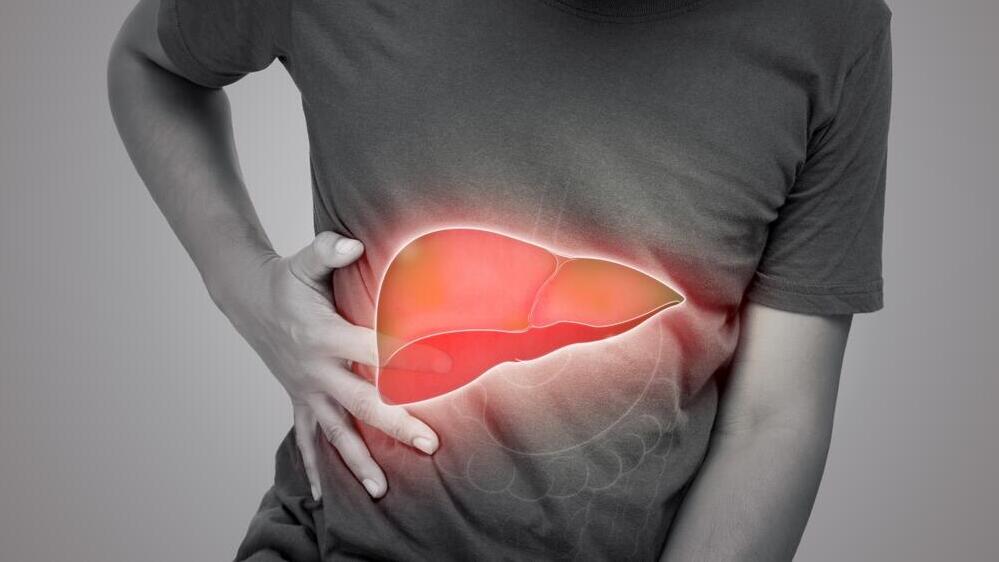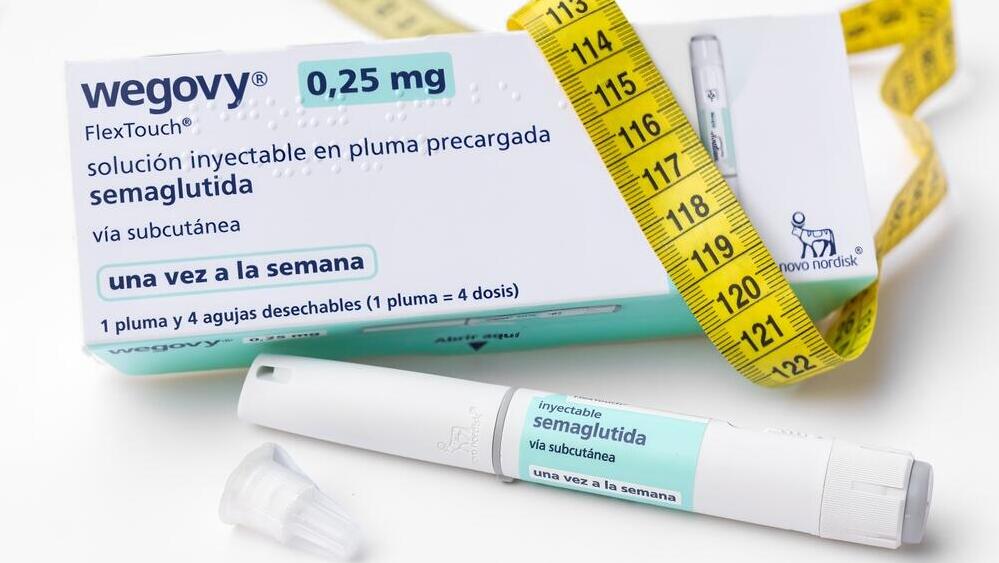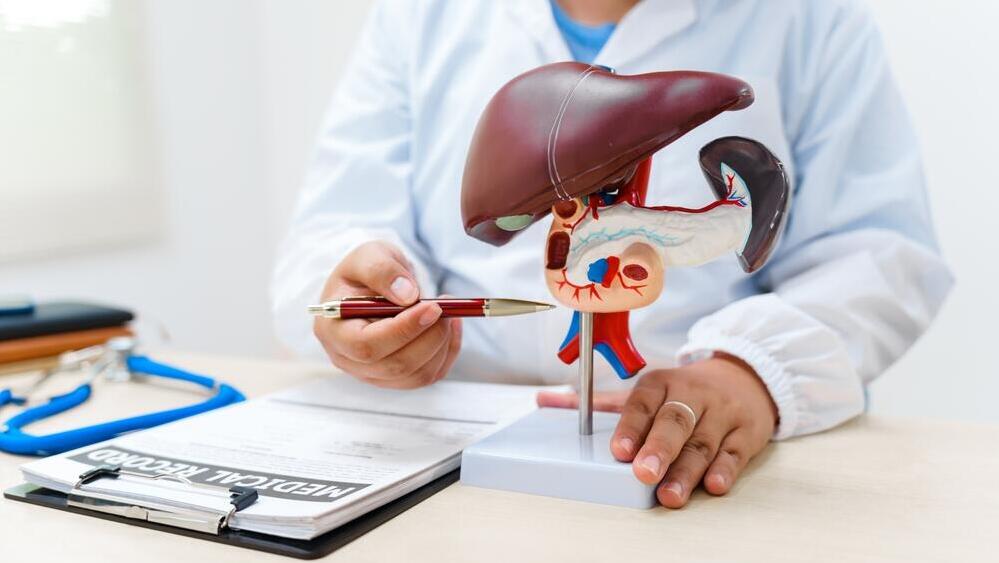New weight-loss drug Wegovy significantly improved a severe form of fatty liver disease in nearly two-thirds of patients in a major clinical trial, according to a new study published in the New England Journal of Medicine.
The condition — known as metabolic dysfunction-associated steatotic liver disease (MASLD), formerly called non-alcoholic fatty liver disease — affects about one-third of adults in the U.S. Roughly 5%–7% develop a more advanced form called metabolic dysfunction-associated steatohepatitis (MASH), where excess fat in the liver triggers inflammation and scarring (fibrosis). Without treatment, MASH can progress to cirrhosis, liver failure or liver cancer.
Insulin resistance is the leading cause of MASLD and MASH, putting people with type 2 diabetes or obesity at heightened risk. Dr. Lior Neuman, a specialist in family medicine and obesity-related conditions, called fatty liver “one of the most common metabolic complications of excess weight,” noting that the disease is often silent even in advanced stages.
Diagnosis typically begins with routine blood tests revealing mild liver enzyme abnormalities, followed by an abdominal ultrasound.
 Dr. Lior NeumanPhoto: Hila Shahar
Dr. Lior NeumanPhoto: Hila ShaharAccording to the U.S. National Institutes of Health, about 75% of overweight adults and 90% of those with obesity have MASLD. Roughly 17 million Americans — about one in five adults with fatty liver — are believed to have progressed to MASH.
Globally, MASLD is estimated to affect over 1 billion people, with U.S. prevalence climbing rapidly. By 2030, cases of MASH in the U.S. are projected to increase by 56%.
Dr. Neuman emphasized early diagnosis as key: “Fat buildup in liver cells can cause inflammation and eventually fibrosis. Severe scarring can lead to cirrhosis and its complications. It was once thought fibrosis was irreversible but we now know that weight loss can reverse both fat accumulation and fibrosis.”
However, he noted that FibroScan — the imaging test used to measure liver fat and scarring — is not yet available through public health providers in Israel
Study details and results
The trial, led by Prof. Philip Newsome of King's College London and Dr. Arun Sanyal of Virginia Commonwealth University, followed 1,195 people with MASH across 253 sites in 37 countries. Participants had an average age of 56 and a body mass index (BMI) of 34.6. About half had type 2 diabetes.
Get the Ynetnews app on your smartphone: Google Play: https://bit.ly/4eJ37pE | Apple App Store: https://bit.ly/3ZL7iNv
Each patient received a weekly injection of semaglutide (the active ingredient in Wegovy and Ozempic) or a placebo over 72 weeks. The dose was gradually increased to 2.4 mg, matching the approved dosage for weight loss. All participants were also offered lifestyle counseling on diet and exercise.
The trial, funded by Novo Nordisk, showed that 62.9% of those receiving semaglutide had significant reductions in liver fat and inflammation, compared to 34.3% in the placebo group. Fibrosis improved in 36.8% of the treatment group, versus 22.4% in the placebo group. Nearly one-third of those on semaglutide showed both benefits, compared to just 16.1% of those on placebo.
Before treatment, most participants had moderate to severe fibrosis (stage 2 or 3). Prof. Newsome called the findings “crucial for patients.”
Semaglutide mimics a natural hormone, GLP-1, which reduces appetite and boosts insulin secretion. Participants taking it lost an average of 10.5% of their body weight, compared to just 2% among placebo recipients.
While weight loss is a known factor in improving liver health, researchers believe the drug may also directly affect disease progression. Further studies are needed to clarify the underlying mechanisms.
“Nothing is proven yet, but GLP-1 drugs may help reduce inflammation by acting on immune cells,” said Prof. Newsome.
The vast majority of participants tolerated the treatment well. Gastrointestinal side effects — including nausea, diarrhea, constipation and vomiting — were most common. Just 2.6% of the semaglutide group and 3.3% of the placebo group discontinued treatment due to side effects.
Hope for millions
Experts welcomed the results but noted the need for long-term data. “This is significant weight loss — but will it last?” said Dr. Sobia Laique, a hepatologist at Cleveland Clinic. “Managing obesity is a two-front battle.”
Dr. Jeffrey Lazarus of the CUNY Graduate School of Public Health called the findings “a breakthrough,” especially following the FDA's 2023 approval of resmetirom (brand name Rezdifra), another treatment for fatty liver disease and fibrosis.
“Until now, we had no pharmaceutical treatment beyond diet and exercise. Now we have two,” he said. Still, he cautioned that these drugs should complement — not replace — lifestyle changes. Rezdifra is not yet available in Israel.
Dr. Susan Spratt, an endocrinologist at Duke University Health System who was not involved in the study, said the results were “particularly promising” given the challenge of reversing fibrosis. “That semaglutide reduced both inflammation and fibrosis is great news,” she said.
Dr. Neuman added that the findings support what many physicians have suspected: losing at least 5% of body weight may help reverse fatty liver disease. “This is real news for millions of patients,” he said.
Novo Nordisk said the U.S. Food and Drug Administration (FDA) could approve Wegovy for MASH by the end of the year. The drug has received “priority review” status, meaning a decision is expected within six months instead of the standard nine.
The findings add to the growing list of conditions GLP-1 drugs may help treat beyond diabetes and obesity. Last year, the FDA approved Wegovy to reduce cardiovascular risk in people with obesity.
In December, it also approved Eli Lilly’s Zepbound (also known as Mounjaro) for sleep apnea. Ozempic was recently approved for treating chronic kidney disease in patients with type 2 diabetes.





